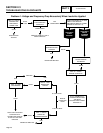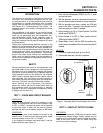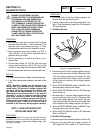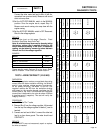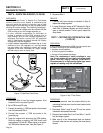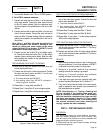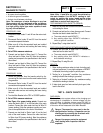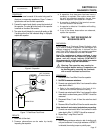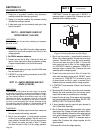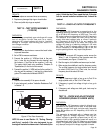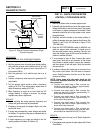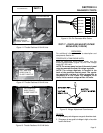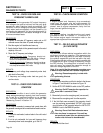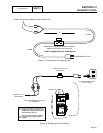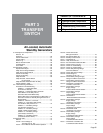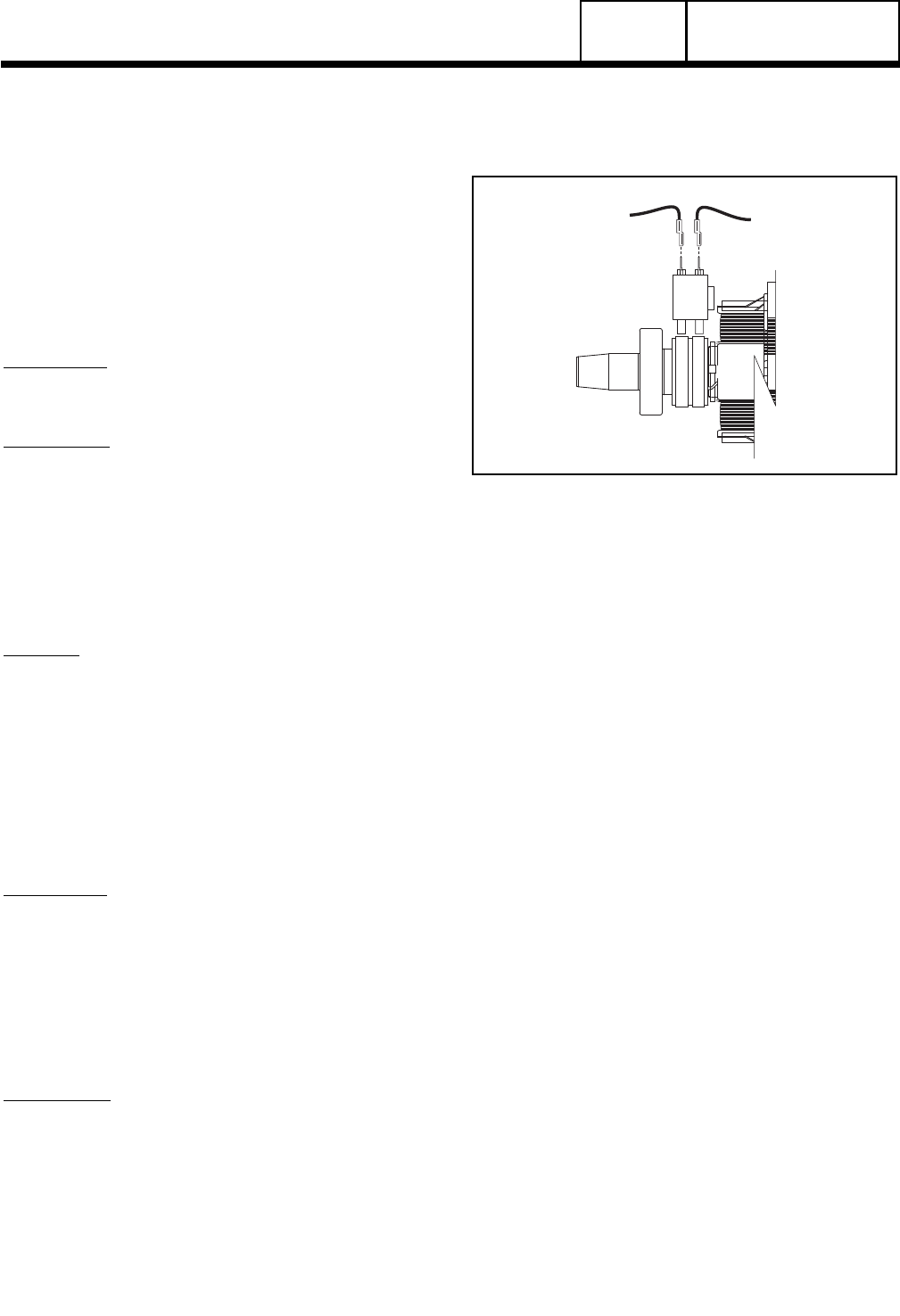
2. Testing for a “grounded” condition: Any resistance
reading indicated the winding is grounded.
3. Testing for a “shorted” condition: Any resistance reading
indicated the winding is shorted.
4. If stator tests good and wire continuity tests good, refer
back to flow chart.
TEST 11 – RESISTANCE CHECK OF
ROTOR CIRCUIT (12-20 KW)
DISCUSSION:
To verify the zero current draw reading and measure
the rotor circuit.
PROCEDURE:
1. Disconnect Wire 4 and Wire 0 from the voltage regulator,
located third and fourth terminals from the top of the
voltage regulator.
2. Set VOM to measure resistance.
3. Connect one test lead to Wire 4. Connect the other test
lead to a clean frame ground. Note the resistance reading.
Compare to specifications in the front of this manual.
RESULTS:
1. If the resistance reading is correct, check the VOM meter
fuse and repeat Test 4.
2. If INFINITY or a high reading is measured on the VOM,
refer back to flow chart.
TEST 12 – CHECK BRUSHES AND SLIP
RINGS (12-20 KW)
DISCUSSION:
The function of the brushes and slip rings is to provide
for passage of excitation current from stationary compo-
nents to the rotating rotor. Brushes are made of a spe-
cial long lasting material and seldom wear out or fail.
However, slip rings can develop a tarnish or film that
can inhibit or offer a resistance to the flow of electric-
ity. Such a non-conducting film usually develops during
non-operating periods. Broken or disconnected wiring
can also cause loss of excitation current to the rotor.
PROCEDURE:
1. See Figure 8. Carefully inspect brush wires; make sure
they are properly and securely connected.
2. Wire 0 from the negative (-) brush terminal connects
to Wire 0 at the voltage regulator. Test this wire for an
open condition. Remove Wire 0 from the brush assem-
bly. Connect one meter test lead to Wire 0. Connect
the other test lead to Wire 0 at the voltage regulator.
CONTINUITY should be measured. If INFINITY is
measured repair or replace Wire 0 between the brush
assembly and the voltage regulator.
0
4
-
+
Figure 8. Checking Brushes and Slip Rings
3. Wire 4 from the positive (+) brush terminal connects to
Wire 4 at the voltage regulator. Test this wire for an open
condition. Remove Wire 4 from the brush assembly.
Connect one meter test lead to Wire 4. Connect the
other meter test lead to Wire 4 at the voltage regula-
tor. CONTINUITY should be measured. If INFINITY is
measured repair or replace Wire 4 between the brush
assembly and the voltage regulator.
4. Connect one meter test lead to Wire 4 Connect the
other meter test lead to frame ground. INFINITY should
be measured. If CONTINUITY is measured a short
to ground exists on Wire 4 repair or replace Wire 4
between the brush assembly and the voltage regulator.
5. If CONTINUITY was measured in Steps 5 and 6 proceed
to Step 9.
6. Disconnect Wire 0 and Wire 4 from the brush assembly.
Remove the brush assembly from the bearing carrier.
Inspect the brushes for excessive wear, or damage.
7. Inspect the rotor slip rings. If they appear dull or tarnished,
they may be polished with fine sandpaper. DO NOT USE
METALLIC GRIT TO POLISH SLIP RINGS.
8. If brush assembly and slip rings look good proceed to
Test 13 (Test Rotor Assembly)
9. Wire 0 connects from the voltage regulator in the control
panel ground lug. Connect one meter test lead to Wire 0
at the voltage regulator. Connect the other meter test lead
to the ground terminal in the control panel. CONTINUITY
should be measured. If INFINITY is measured repair or
replace Wire 0 between the voltage regulator and the
ground terminal.
10. Remove Wire 4 from the voltage regulator.
Page 48
PART 2
AC GENERATORS
SECTION 2.4
DIAGNOSTIC TESTS



